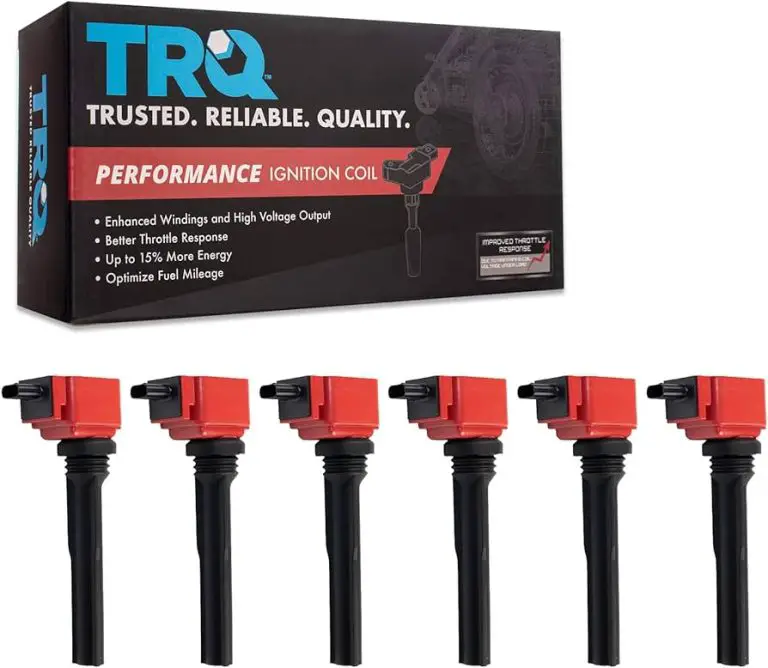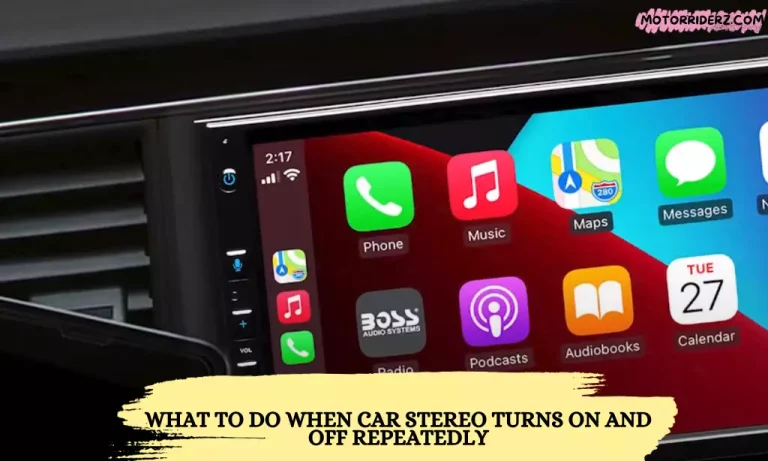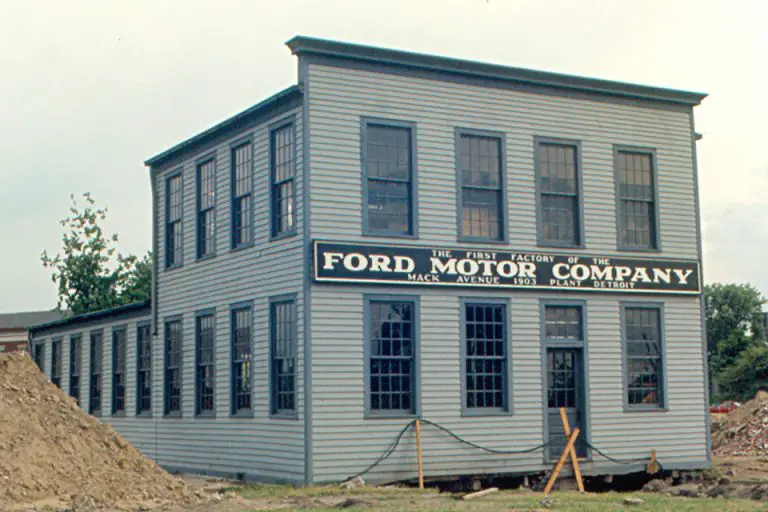Symptoms Of 7.3 Powerstroke PCM Failure (Troubleshooting Guide)
The Powertrain Control Module (PCM) serves as the brain of a vehicle’s engine, responsible for controlling various vital functions. In the case of the 7.3 Powerstroke engine, a PCM failure can lead to a range of issues that affect performance, fuel efficiency, and overall drivability.
Identifying the symptoms of a failing PCM is crucial in order to take appropriate action and prevent further damage.
One common sign of 7.3 Powerstroke PCM failure is engine misfires. The PCM regulates fuel injection and ignition timing, and when it malfunctions, it can disrupt these processes, leading to inconsistent combustion and misfires.
Another indicator of PCM trouble is a noticeable decrease in power and acceleration. A failing PCM may not provide accurate signals to the engine components, resulting in reduced power output and sluggish performance.
Signs Of A Bad 7.3 Powerstroke PCM Failure?
Signs of a bad 7.3 Powerstroke PCM failure can manifest in several ways, indicating that the Powertrain Control Module is not functioning properly. Here are some common signs to watch out for:
- Engine Misfires: A failing PCM may disrupt fuel injection and ignition timing, leading to engine misfires. You may experience rough running or a noticeable lack of power during acceleration.
- Decreased Power and Performance: A malfunctioning PCM may not provide accurate signals to the engine components, resulting in reduced power output and decreased overall performance. You may feel a significant loss of power when towing or climbing hills.
- Erratic or Rough Idle: The PCM controls the idle speed of the engine. When it fails, you may notice unstable or rough idling patterns, such as fluctuating RPMs or a lumpy idle.
- Starting and Stalling Issues: A faulty PCM can cause difficulty starting the engine, requiring multiple attempts before it starts. Additionally, the engine may stall unexpectedly, especially at idle or when coming to a stop.
- Dashboard Warning Lights: A malfunctioning PCM can trigger warning lights on the dashboard, such as the check engine light or other engine-related indicators. These lights serve as a signal to have the vehicle inspected for potential PCM failure.
7.3 Powerstroke PCM Failure Symptoms
7.3 Powerstroke PCM (Powertrain Control Module) failure can exhibit various symptoms, indicating a malfunction in the engine control system. Here are some common signs to be aware of:
- Engine Performance Issues: A failing PCM can cause a range of engine performance problems. You may experience a lack of power during acceleration, reduced fuel efficiency, or overall poor engine performance. The engine may feel sluggish, unresponsive, or may hesitate during acceleration.
- Persistent Check Engine Light: When the PCM detects a problem in the engine, it illuminates the check engine light on the dashboard. If the PCM is faulty, the check engine light may remain lit persistently, indicating an ongoing issue that needs to be addressed.
- Rough Idle and Stalling: A malfunctioning PCM can lead to an erratic or rough idle, where the engine may idle inconsistently, experience surges, or even stall unexpectedly. This can happen when the PCM fails to regulate the idle speed properly.
- Misfires and Rough Running: A faulty PCM can disrupt the fuel injection and ignition timing, resulting in engine misfires. You may notice rough running, a vibrating sensation, or unusual noises coming from the engine.
- Transmission Issues: The PCM also controls the transmission in a vehicle. If the PCM fails, it may cause shifting problems, such as delayed or harsh shifting, erratic gear changes, or transmission slipping.
- Inaccurate Sensor Readings: The PCM relies on various sensors to monitor engine conditions. A failing PCM may receive incorrect data from these sensors or fail to interpret it correctly, leading to erratic behavior, incorrect fuel mixture, or other performance issues.
What To Do When You Detect A Bad 7.3 Powerstroke PCM?
If you detect a bad 7.3 Powerstroke PCM (Powertrain Control Module), it’s important to take appropriate steps to address the issue and get your vehicle back in proper working condition. Here’s what you should do:
- Diagnostic Scan: First, have your vehicle scanned by a qualified technician or use a diagnostic tool that can read PCM trouble codes. This will help identify the specific problem and pinpoint whether the PCM is indeed faulty.
- Consult with a Professional: Reach out to a knowledgeable mechanic or visit a reputable dealership that specializes in Powerstroke engines. They will have the expertise and diagnostic tools necessary to accurately assess the PCM and determine if it needs to be replaced or repaired.
- PCM Replacement or Repair: Depending on the severity of the PCM failure, the technician may recommend either replacing the PCM with a new one or repairing the existing unit. The appropriate course of action will depend on the specific issue and the availability of compatible parts.
- Programming and Calibration: After the new PCM is installed or the existing one is repaired, it will need to be programmed and calibrated to match your vehicle’s specifications. This step ensures that the PCM communicates effectively with other engine components.
- Regular Maintenance: To prevent future PCM issues, it’s crucial to adhere to regular maintenance schedules for your 7.3 Powerstroke engine. Keep up with oil changes, filter replacements, and other recommended maintenance tasks to maintain optimal performance and prolong the life of your PCM.
Is Replacing A Bad 7.3 Powerstroke PCM Typically Expensive?
The cost of replacing a bad 7.3 Powerstroke PCM (Powertrain Control Module) can vary depending on several factors. Here are some key considerations that can affect the expense:
- New vs. Remanufactured: The price can differ depending on whether you choose a brand new PCM or a remanufactured one. Remanufactured PCM units are typically more cost-effective, as they are refurbished and tested to meet OEM specifications.
- OEM or Aftermarket: Opting for an OEM (Original Equipment Manufacturer) PCM from the vehicle’s manufacturer can be more expensive compared to aftermarket alternatives. OEM parts are designed specifically for your vehicle and may provide a higher level of compatibility and reliability.
- Labor Costs: The cost of labor for PCM replacement can vary depending on the shop or dealership you choose. Labor charges can be higher if the PCM replacement involves extensive disassembly or reprogramming of the vehicle’s systems.
- Warranty Coverage: Some PCM replacements may be covered under warranty if your vehicle is still within the warranty period. Be sure to check if the PCM replacement is eligible for warranty coverage, as it can significantly reduce your out-of-pocket expenses.
How Often Should You Inspect 7.3 Powerstroke’s Powertrain Control Module?
The Powertrain Control Module (PCM) of a 7.3 Powerstroke engine does not typically require routine inspections as part of regular maintenance. The PCM is designed to be a durable and long-lasting component of the vehicle’s engine control system. However, it’s important to keep in mind that unexpected issues can arise with the PCM, and it should be inspected if any symptoms or warning signs of PCM failure are observed.
Instead of regular inspections, it is more crucial to monitor the overall performance of your 7.3 Powerstroke engine and be vigilant for any unusual behaviors, such as engine misfires, rough idling, decreased power, or persistent check engine lights. These can potentially be indicators of PCM malfunction.
If you notice any of these symptoms or suspect PCM failure, it is recommended to have your vehicle diagnosed by a qualified technician with experience in Powerstroke engines. They can perform diagnostic scans and tests to determine if the PCM is the source of the problem and take appropriate measures for repair or replacement.
While routine inspections specifically for the PCM are not necessary, attentive monitoring of the engine’s performance and prompt investigation of any unusual symptoms are key to addressing potential PCM issues in a 7.3 Powerstroke engine.
Frequently Asked Questions
Q: Can a bad PCM cause other electrical issues in a 7.3 Powerstroke?
A: Yes, a bad PCM in a 7.3 Powerstroke engine can potentially cause other electrical issues. The PCM serves as the central control module for various engine systems, and if it malfunctions, it can affect the proper functioning of other electrical components. This can result in issues such as faulty sensor readings, malfunctioning gauges, intermittent power loss, or problems with other electronic modules connected to the PCM.
Q: How can I diagnose a bad PCM in my 7.3 Powerstroke?
A: Diagnosing a bad PCM in a 7.3 Powerstroke requires the use of diagnostic tools and expertise. It is recommended to consult with a qualified technician or visit a reputable dealership that specializes in Powerstroke engines. They will be able to perform diagnostic scans using specialized equipment to retrieve trouble codes and assess the PCM’s functionality. Through thorough testing and analysis, they can determine if the PCM is the source of the problem and whether it needs to be repaired or replaced.
Q: Can a bad PCM be repaired, or does it need to be replaced?
A: In some cases, a bad PCM can be repaired by a skilled technician who specializes in automotive electronics. However, the repairability of a PCM depends on the nature and severity of the issue. In many instances, PCM replacement is the recommended course of action, especially if the failure is significant or if the PCM is beyond repair. Replacing the PCM with a new one or opting for a remanufactured unit is a common approach to restore proper functionality.
Q: Should I attempt to replace the PCM myself?
A: Replacing the PCM in a 7.3 Powerstroke engine requires specialized knowledge, tools, and expertise. It is generally not recommended for individuals without experience in automotive electronics. The PCM is a critical component that affects the engine’s performance and overall vehicle operation. It’s best to have a qualified technician handle the replacement to ensure proper installation, programming, and calibration of the new PCM. This will help prevent potential complications and




